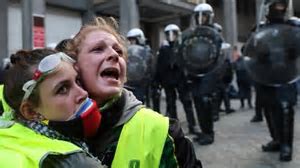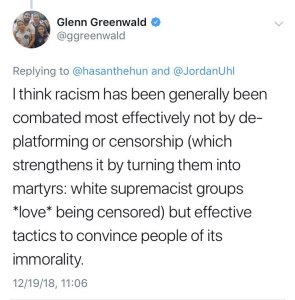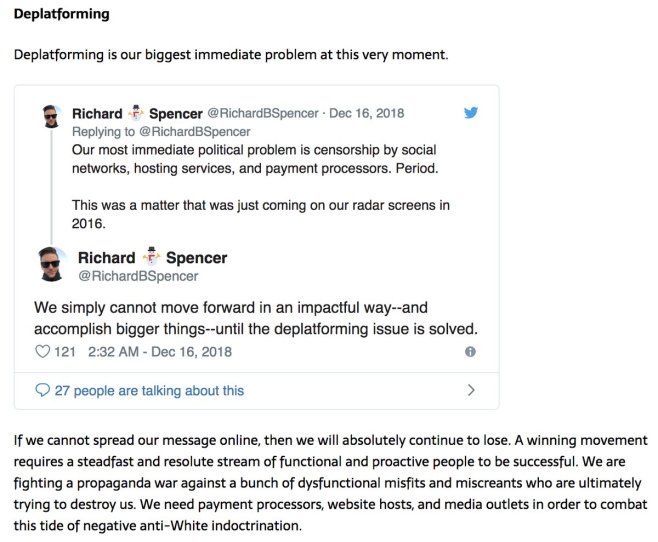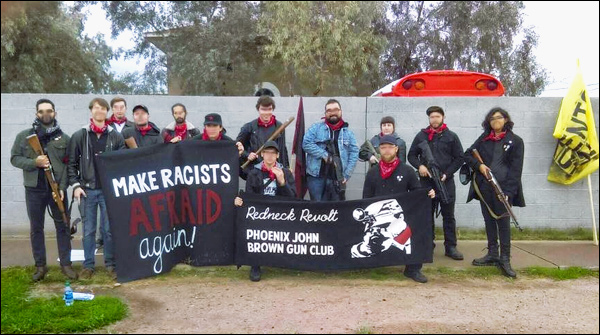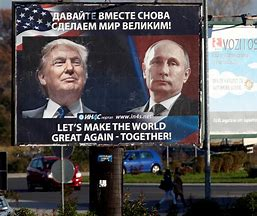 |
| Mothers against fascist dictatorship |
The rise of the extreme right and the election of a Bonapartist figure like Bolsonaro are the result of the aggravation of the crisis of capitalism in Brazil. This signifies the exhaustion of the Workers' Party (PT) and the Popular Front (PF) in their function of pacifying the workers who fight against the attacks of the bourgeoisie and imperialism. Global capitalism, faced with its terminal crisis, resorts to Bonapartism and fascism as a means of getting workers to pay the price of the crisis.
With a populist and conservative discourse, Bolsonaro exploited the discontent of the petty bourgeoisie and the unemployed with the current crisis situation. As a characteristic of Bonapartism, it has placed itself above the parties and institutions that are demoralized and worn out in the eyes of the population. Corruption, the privilege of politicians and bargaining in the spheres of power, as the population suffers from unemployment and falling living conditions, was the main reason for the votes for an "anti-system" candidate. The PT was the party most associated with this system. "Anti-petismo" (anti-PT) was the flag in the election campaign of Bolsonaro and several candidates to the parliament and to the state governments. However, all the major parties that have governed the country since the re-democratization, especially PSDB (Brazilian Social Democracy Party) and PMDB (Party of the Brazilian Democratic Movement), suffered with rejection in these elections.
Corruption, privileges of a political oligarchy and attacks on workers. This is the "system" established with the 1988 Constitution and the bourgeois democratic regime. This is what capitalism can give in its imperialist epoch. Obviously, the PT is not responsible for corruption and for this "system" as the bourgeoisie and Lava-Jato want to believe, but the PT entered this system when joining the bourgeoisie to govern the country for more than 13 years. Lula / PT and the so-called "progressive" governments of Latin America rose to power in a moment of world economic growth, boosted by the sale of commodities to China. Far from breaking with capitalism, these governments were able to give crumbs to the workers and poor people while applying neoliberal measures. Far from being "anti-imperialist," these governments lined up and increased their dependence on Chinese imperialism.
Bolsonaro was elected by a great feeling of change and promising to end the corruption, that the population sees as cause of the worsening of the conditions of life. We know that neither the inherent corruption of capitalist relations nor the economic crisis will resolve itself, and it will have to attack the working class hard. The instability generated by the capitalist crisis has already led to the impeachment of Dilma and the unpopular government of Temer who had moments on the tightrope. Bolsonaro is a veteran of the military regime and has announced several military personnel to compose his ministry. Ending the illusion of Bolsonaro's promises, a regime of exception may be the only "change" the bourgeoisie will have to offer.
The biggest challenge of the working class to fight Bolsonaro and fascism is to break with the Popular Front. For what divides the working class is the bourgeoisie. The working class will remain divided as long as the opportunist leadership directs large numbers of workers to join the bourgeoisie and abandon class independence, shifting the struggle to illusions in parliament. Workers need a united front, to organize the class in an independent and democratic way, to assume the traditional methods of direct struggle, the only way to combat fascism and imperialism.
THE PARTIES OF THE LEFT AND THE CAPITULATION TO THE PEOPLE'S FRONT
The PT and a large part of the left are today the greatest defenders of the demoralized bourgeois democratic regime to combat Bolsonaro and the threat of fascism. In the second round of elections, almost all leftist organizations supported the Popular Front (PF) by voting for the PT. Including organizations claiming to be revolutionary, such as PSTU (Unified Workers' Socialist Party), MES (Socialist Left Movement), CST (Socialist Workers' Current) and MRT (Revolutionary Movement of Workers). These false Trotskyists evoked the struggle of the Bolsheviks against Kornilov's fascist coup to justify their support for the Popular Front. Lenin and Trotsky were relentless combatants against the PF. While fighting Kornilov, they called for the One Front precisely to expose the betrayal of the Mensheviks who were part of the provisional government of the PF!
The left abandoned any prospect of struggle for the Brazilian revolution. The main policy of these organizations for the elections, and now after the elections, is the call for the "Broad Front" of the PT to defend (bourgeois) democracy! That is, the only way out for the working class against Bonapartism and fascism would be the alliance with so-called "democratic" or "progressive" sectors of the bourgeoisie.
Guilherme Boulos and the PSOL (Socialism and Liberty Party) leadership capitulate to the PT and have been the major mouthpieces of the populist front politics. With the electoral process polarized between Bolsonaro and the PT, Boulos's candidacy was the true auxiliary line of the PT. Boulos and PSOL spent the year 2017 constructing the "VAMOS" platform on a front with PDT (Democratic Labour Party), PSB (Brazilian Socialist Party) and other bourgeois sectors that they say are "progressive". In the second round he called a vote for the PF, consistent with his defense of bourgeois democracy vs. fascism. The PSOL is a split from the PT and was opposed to its government, but it is a reformist party and, in fact, never was against the policy of popular front. Socialism is a word that does not exist in the vocabulary of Boulos. The program advocated by him and the PSOL leadership on the VAMOS platform is openly reformist, posing as the greatest advocates of "better" capitalism and accusing as divisive and sectarian those defending class independence, the Frente Única and a revolutionary strategy.
The PSTU supported the bourgeoisie's maneuver to overthrow the PT as a "democratic right," and Lava-Jato as a "fight against corruption." For the PSTU, to stand against impeachment was to support the PT and the PF, as there was no threat from the extreme right and fascism in Brazil. In the second round they supported the popular front by calling for a PT vote against the far-right candidate who "defends a dictatorship project for our country", a threat that a few months ago they said did not exist! We warned that the PSTU was only masking its opportunism with sectarianism and its logic would lead to the defense of the PF against fascism. We said that the rise of the extreme right and fascism is fought with class independence and methods of direct struggle of the workers and not with the PF that serves to demobilize the workers and open the way to fascism. We did not support the PT and the PF and were against the impeachment and maneuvers of the bourgeoisie. We are against the narrative of the coup that disarms the working class in the struggle against a real coup and a fascist regime. The PSTU did this disarming denying a fascist threat and then supporting the PF in the elections.
BOLSONARO IN INTERNATIONAL POLICY
The new president defends a policy of alignment with American imperialism. Following the anti-China line of Trump, he says that the Asian country is not investing but rather "buying" Brazil. The editorial of the Chinese government aligned newspaper was considered a warning against some of the new government's plans to cancel deals with China. Bolsonaro's nationalist rhetoric contrasts with his economic team of notables led by economist "Chicago boy" Paulo Guedes who hastily said that business with China is important to the country and will not be affected. Bolsonaro's statements against China were also seen as a risk by businessmen and sectors who fear for their business. While Bolsonaro says he does not understand economics and Paulo Guedes is the one who decides in this area, the other ministries have been filled with conservative and military figures, closer to his far-right politics. Bolsonaro's nationalism cannot go beyond its subordination to imperialism.
The global crisis of capitalism shakes the hegemony of US imperialism established in World War II and stirs up the dispute with the ascendant imperialisms of China and Russia. The actual crisis, of commercial and military wars, affirms Lenin's Marxist theory of imperialism which explains the destructive character of capitalism in the imperialist era, when the world is already divided between the great powers that must go to war to survive. The dispute between the US/EU and China/Russia blocs is an inter-imperialist one in which workers must maintain their class independence and the unity of the workers of the world in the struggle for socialist revolution, the only revolution capable of defeating both imperialist blocs, avoiding their wars and the destruction of the environment.
Much of the left, especially the Stalinists, defend the China/Russia bloc claiming an "anti-imperialist" struggle for a "multipolar" world. We say that this is nothing more than revisionism of a traitorous left. We affirm Marxism and Trotskyism that there was no "progressive" bourgeoisie in the imperialist era and that the democratic demands and independence from imperialism can only be achieved by the workers with the permanent revolution. It is not possible for a semi-colony to become imperialist. China and Russia were able to develop their productive forces with the expropriation of the bourgeoisie, so they returned to the capitalist sphere as imperialist countries. The reactionary national bourgeoisie are unable to develop the productive forces and fear the working class and the revolution more than they fear imperialism.
For the reformist left, Bolsonaro and fascism were fought on the national level, by means of a PF with the "progressive" national bourgeoisie. On the international scene, they are part of a big PF with China and Russia to fight against American imperialism. Defending Chinese and Russian imperialism as an alternative to the US is to take sides in the imperialist dispute and abandon class independence and revolutionary strategy.
THE WORKERS STRUGGLE
Contrary to what the reformists say, the workers and poor people have staged various struggles and resistance. However, these struggles are becoming subordinate to the reformist strategy of struggle within parliament and the PF. Class independence and traditional methods of struggle are boycotted and impeded by the opportunist leaderships of the movement.
With the outbreak of the crisis in 2008 and the announcement of thousands of layoffs in the metallurgical sector, the CUT (Central Única dos Trabalhadores) rushed to defend the PT government and dismantle the resistance, while the main leader of the PSTU metallurgists in São José dos Campos, got on the sound truck with the well-known union bureaucrat Paulinho Da Força, beginning his policy of alliance with the trade union bureaucracy and their bourgeois parties that lasts until today. In the years that followed, teacher strikes spread throughout the country and the need to unify these struggles was diverted by CUT/CNTE into a 3-day general strike in defense of the National Education Plan (PNE) and this diversion was supported by the entire left. The PNE was precisely the neoliberal plan for privatization or outsourcing of education throughout the country! In 2012, the university strike and more than 400,000 federal workers were isolated and demobilized by the CUT/PT with the help of the left, which was said to be opposed to the PT government but was not politically independent of the PT and the union bureaucracy.
In 2013, during the rise of the youth against the increase of bus fares, which led to mass demonstrations and became known as the June Days, again the left that claimed to be the opposition to the government, such as PSTU and PSOL, did not have any independent policy from the PT and many ended up supporting the government and the media by calling the demonstrators "vandals".
The June Days followed with numerous strikes all over the country, some historic, including in Porto Alegre, Rio de Janeiro (RJ), such as Rio’s bus drivers and teachers, in the middle of the "Não Vai Ter Copa". All this movement of resistance of the workers was attacked and boycotted by the central trade unions, CUT and CTB. So did the left that claimed to be opposition to the government, keeping the strikes isolated by category, with economist guidelines and preventing any attempt to include "Não Vai Ter Cup" in the strike agenda, a slogan that was shouted at the assemblies and raised in posters by workers. On the eve of the opening of the World Cup in São Paulo, the leadership of the subway union, led by PSTU and PSOL, ended the strike, and the MTST (Homeless Workers' Movement) leadership ended the occupation of the "People's Cup", two movements that brought the city to a stop.
On the opening day of the World Cup there were marked demonstrations throughout the country. In Porto Alegre, striking municipal workers who had concentrated in the center of the city a month before were diverted to a distant action, in a clear example of the union's leadership isolating the movements. In Sao Paulo, demonstrators were attacked by the police who prevented them from entering the subway and receiving shelter from the transit workers union. The workers' strikes were isolated and defeated, and the youth and some independent movements were left alone in the resistance against the World Cup and the government, resulting in 23 convictions under the Anti-terrorism law approved by Dilma. The true United Front formed in strikes, school occupations, Block of Fights in Porto Alegre or the Fight Forum in Rio were dismantled all over the left.
However, the struggles did not end and 2016 was marked by school occupations by high school students. After Temer's inauguration, the "Out With Temer" movement took to the streets of the cities, and in Porto Alegre there were 50 thousand demonstrators, as well as in São Paulo, Rio and several cities across the country. The demonstrations were all controlled by the PT and its allies and diverted by the strategy of pressuring the government and contesting the bourgeois elections. At that moment, the capitulations to the PT and the PF of the currents that claim to be to the left and in opposition to the PT government were already enormous and the total absence of an alternative policy by these organizations became clearer. The struggles against the Reformation of Secondary Education, the PEC of the Ceiling of the Expenses and Labor Reform of Temer were subordinated to the "unity of action" of the opportunist leaderships in a bureaucratic bloc among the union federations. CSP Conlutas, which emerged as an alternative to the CUT's governing bureaucracy, is today the largest advocate of this unity with the opportunist leadership of the movement. In the metalworkers' union led by CSP Conlutas, while keeping strikes isolated by factories and with an economist agenda, the CSP leaders leave the agenda of the General Strike and Against the Reforms and government attacks in the hands of the trade union bureaucracy and their Popular Front alliances.
The minority movement is another example of struggle and resistance that is also controlled by the opportunist leaderships that lead the working women's movement to subordination to bourgeois feminism. The #EleNao movement, which generated demonstrations throughout the country with thousands of women against Bolsonaro's candidacy and fascism, was channeled into the bourgeois elections and the defense of Haddad’s PT candidacy.
Faced with the deep crisis that the country is going through, it is not only the workers and the poor and oppressed people who show their revolt and indignation. Sectors of the bourgeoisie and petty bourgeoisie are also dissatisfied and outraged by the situation. This outrage was capitalized on by the right and extreme right in 2015 in the move that led to Dilma's impeachment. Reactionary sectors are also dissatisfied, leading to "police strikes" generating chaos in the states and getting support from several leftist currents! But the most emblematic movement was the truckers' strike in May, 2018. The indignation of the autonomous truck drivers who cannot keep their livelihood was led by transport entrepreneurs who are also not at all pleased with the high fuel prices. These reactionary sectors also wanted a "solution" to the crisis, but their solution had nothing to do with the interests of the workers, demonstrated by the number of factions in the truckers' strike that called for "Military Intervention Now".
The truck drivers' strike lasted 10 days, causing a supply crisis bringing the country to a stop with great popular support, threatening the already weakened Temer government. All the left came out in support of the "strike," consistent with its policy of unity with "progressive" bourgeois sectors. The CUT was paralyzed in the first week of the strike and after the movement rejected the unions' agreement with the government to end the strike, the CUT then began to mobilize the tankers, the sector it organizes, and to raise the slogan of "against Petrobras' price policy" and “Down With Parente" (the president of the oil company) and there followed 3 days of strike by the trade. The slogan of the CUT / PT became a force in the movement and were picked up by the truck drivers, including the fall of Parente. On the day marked for the strike of the oil tankers, the leadership of the truck drivers' movement ended the strike. The roads that had been taken by trucks on the first day of the oil tankers' strike were totally empty. The oil tankers' strike did not last the 3 days, and was totally demoralized.
Does the fact that the truckers' strike was a movement of the bourgeoisie and petty bourgeoisie mean that the workers should not mobilize and strike? No, on the contrary. Popular support for the truckers' strike showed the feeling of indignation of the population, especially the workers and the poorest people and showed the need for an independent movement of the working class. The phrase most heard on the days of the truckers' strike was "have it for everything," it was a great moment for an independent movement of the working class for a General Strike to call on the workers to break with the bourgeois sectors and unite the sectors of workers. The support of the CUT and the call to join in the strike was not a call for class unity, but to unity with bourgeois and petty bourgeois sectors, which left the movement in the hands of the bosses of transport and the bureaucracy of the truckers' unions, inevitably leading to the defeat of the movement.
CONCLUSION
The new government has not yet assumed office and already shows all its fragility. The formation of its team of ministers is surrounded in several controversies of dispute between its allies and Bolsonaro’s party, showing that the "give and take" that it said it would fight continues. Just as the allegations of corruption, which shakes his future minister of the civil house, and in recent days, the denunciations made by the media involving his son who is a deputy, and the undue receipt of money by his wife, while his deputy, General Mourão makes statements saying that Bolsonaro has to explain the origin of the money. Police in the state of Roraima are on strike, the government has announced federal intervention in the state and the truckers who threaten further paralysis.
There is no way out for the workers within capitalism. And to defeat capitalism, class independence and its traditional methods of struggle are required. Workers need to form committees for workplace, study and housing and organize self-defense committees. A true united front is needed that brings together workers and social movements for State and National Congresses, with delegates elected at the base, to discuss a program of struggle for the working class.
• NO TO THE PENSION REFORM AND PRIVATIZATION!
• IN DEFENSE OF PUBLIC SERVANTGS AND THE PUBLIC SERVICE
• NO TO FISCAL ADJUSTMENT!
• FOR THE NATIONALIZATION OF LARGE COMPANIES AND BANKS, WITHOUT INDEMNIFICATION AND UNDER WORKERS CONTROL!
• FOR A REVOLUTIONARY WORKERS PARTY!
• FOR A UNITED FRONT! FOR STATE AND NATIONAL CONGRESSES OF WORKERS, WITH DELEGATES ELECTED FROM THE RANK-AND-FILE AND WITH WORKERS DEMOCRACY!
• FOR THE REVOLUTIONARY GENERAL STRIKE, THAT DEFEATS THE BOURGEOISIE AND INSTALLS A WORKERS GOVERNMENT!
• FOR THE BRAZILIAN REVOLUTION AND A SOCIALIST LATIN AMERICA!
Reblogged from https://grupodetrabalhadoresrevolucionarios.wordpress.com/2018/12/10/balanco-das-eleicoes-a-falencia-da-esquerda-e-a-necessidade-de-uma-direcao-revolucionaria/
